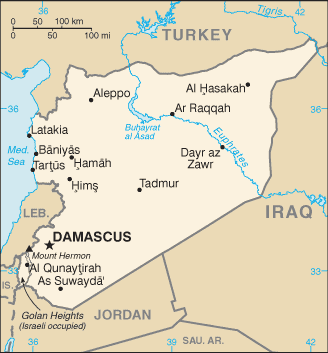The UN Security Council has set an emergency meeting for Friday to discuss the growing problem of military sieges in Syria against towns full of civilians, and the difficulties of getting humanitarian aid past the blockades and to civilians.
 UN Secretary General Ban Ki-moon issued a statement today calling on all sides to stop sieges of populated areas ahead of the scheduled Geneva peace talks as a “confidence-building measure,” saying the situation is “unconscionable.”
UN Secretary General Ban Ki-moon issued a statement today calling on all sides to stop sieges of populated areas ahead of the scheduled Geneva peace talks as a “confidence-building measure,” saying the situation is “unconscionable.”
This time last year, Ban says about 5% of sieged populations had access to food aid, and this year that number is down to only about 1%, as both government and rebels have clamped down increasingly to try to force surrenders in surrounded towns and cities.
Recent deals have seen different sides trading temporary humanitarian access with one another, as with a situation earlier this week that saw the government allowing aid into the town of Madaya in return for rebels allowing aid into a pair of Shi’ite villages in the norther.


